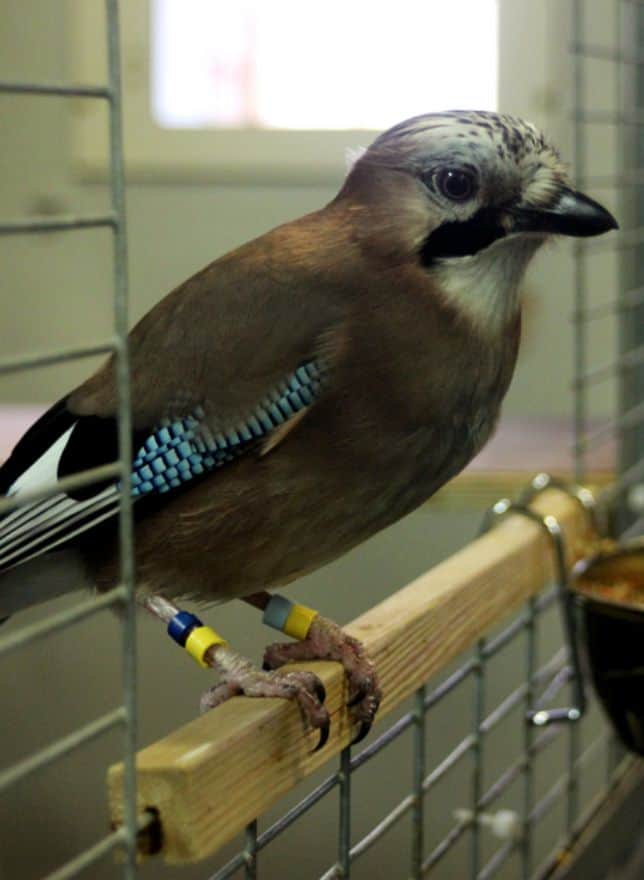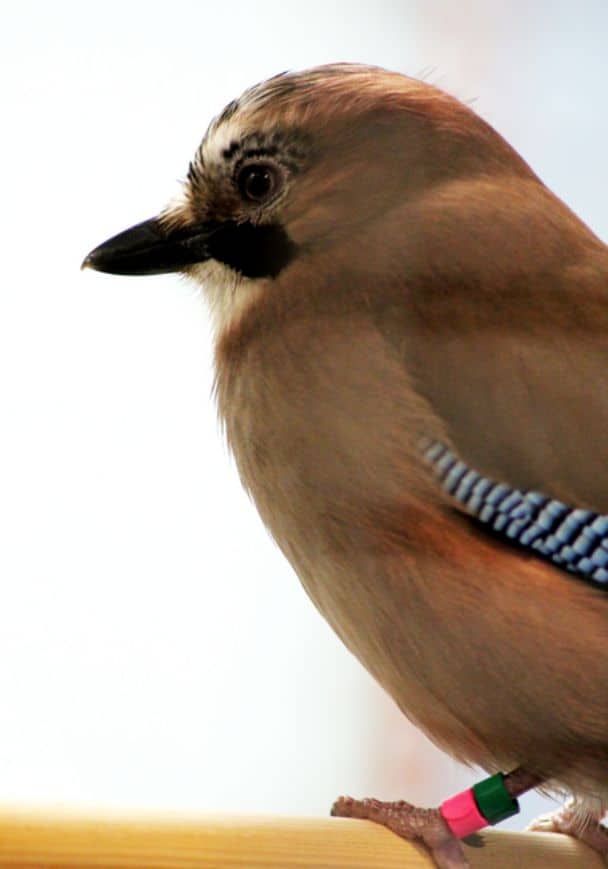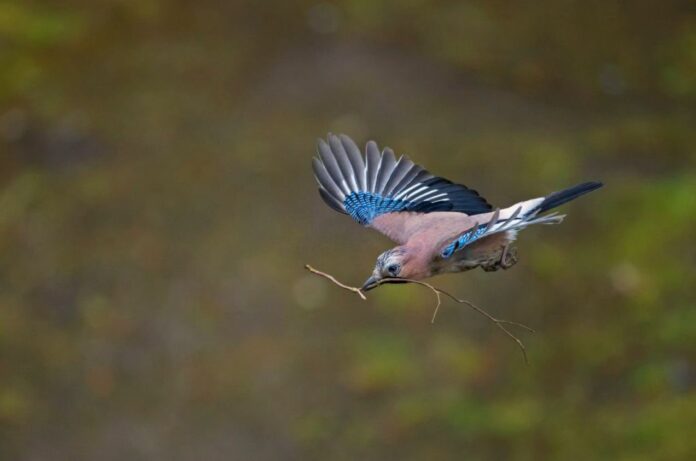Eurasian jays belong to the corvid family, which is often known as the “feathered apes” because of how cognitively competitive they are with non-human primates.
Corvids hide their food, or ‘cache’ it, to keep it for later. In other words, they have to put off immediate pleasure in order to plan for meals in the future.
Researchers think that this may have made these birds more self-controlled over time.
In prior studies, these researchers and others found that self-control is associated with intellect in humans, chimps, and cuttlefish. The more self-control someone has, the smarter they are.
The new findings indicate that the relationship between intellect and self-control occurs across animal taxa that are distantly related, suggesting that it has evolved independently multiple times.
As the most sociable of the corvids, jays are also the most likely to have their food stores raided by other birds. Self-control also permits them to conceal their meal without being seen or heard at the optimal time.
The findings were published in the journal Philosophical Transactions of the Royal Society B today.

Taking cues from the 1972 Stanford Marshmallow test, in which children were given the option of eating one marshmallow right away or two marshmallows after waiting a certain amount of time, researchers tested the self-control of 10 Eurasian jays, Garrulus glandarius.
The jays were not fed marshmallows, but rather mealworms, bread, and cheese.
Mealworms are a popular favorite; bread and cheese are close behind, however, some prefer one over the other.
The birds had to decide between bread or cheese, which they could get right away, and mealworms, which they could see but couldn’t get to until a Perspex screen was lifted.
Can they wait for their favorite food?
There was a five-second to five-and-a-half-minute delay before the mealworm was made available if the bird had resisted the temptation to consume the bread or cheese.
All the birds in the experiment were able to wait for the worm, however, some birds were able to wait for a lot longer than others.
Top of the class was “JayLo,” who turned down a piece of cheese and waited for a mealworm for five and a half minutes.

Dolci and Homer, the lowest performers, were only able to wait for a total of 20 seconds.
“It’s just mind-boggling,” says first author Dr. Alex Schnell, adding, “that some jays can wait so long for their favourite food. In multiple trials, I sat there watching JayLo ignore a piece of cheese for over five minutes – I was getting bored, but she was just patiently waiting for the worm.”
When offered bread or cheese, the jays appeared to be trying to avoid temptation by turning their heads away. Chimpanzees and children have eerily similar behaviors.
Additionally, the researchers gave the jays five cognitive exercises that are frequently used to gauge overall intelligence.
The birds who did better at these tasks were also able to wait longer for the mealworms.
This shows that in jays, self-control and intelligence are linked.
“The birds’ performance varied across individuals – some did really well in all the tasks and others were mediocre,” adds the first author.
“What was most interesting was that if a bird was good at one of the tasks, it was good at all of them – which suggests that a general intelligence factor underlies their performance.”
The jays also changed their self-control behavior depending on the situation: in a different trial, when the worm was constantly visible but out of reach, the jays always consumed the bread or cheese that was instantly available.
When compared to their third most liked food as the immediate reward, the amount of time they were willing to wait for the worm decreased.
This adaptability demonstrates that jays only postpone gratification when it is necessary.
Scientists have found that the self-control of children who take the Stanford marshmallow test varies a lot and that this ability is linked to their general intelligence.
Children who can withstand temptation longer also perform better on a variety of academic assignments.
Source: 10.1098/rstb.2021.0348
Image Credit: Sven-Erik Arndt/Arterra/Universal Images Group via Getty Images
You were reading: No One Knew Birds Also Have This ‘Mind-boggling’ Behavior
